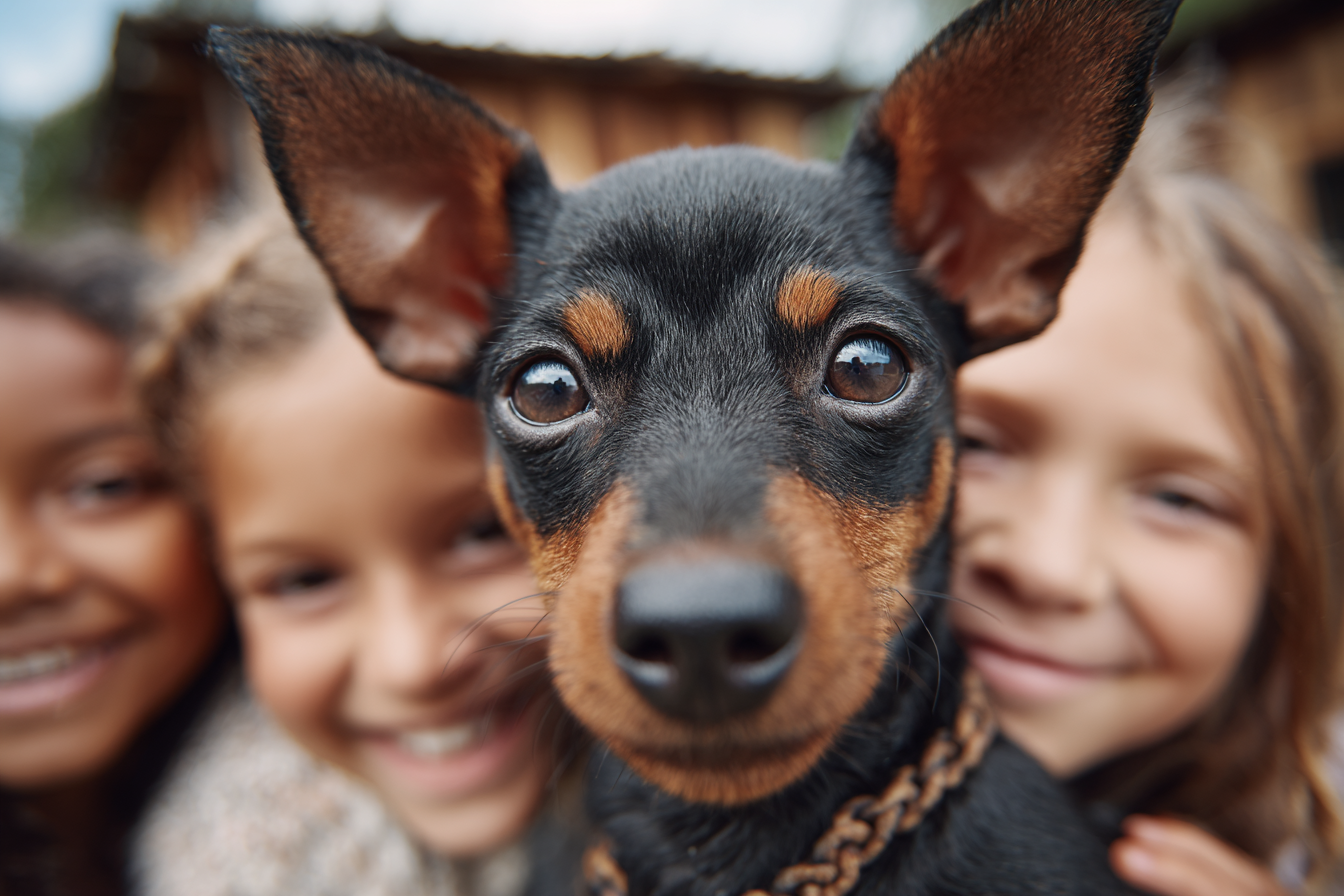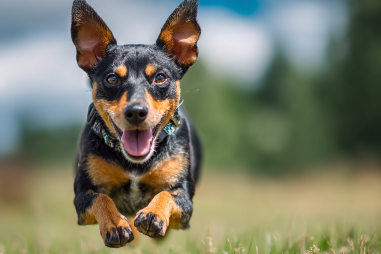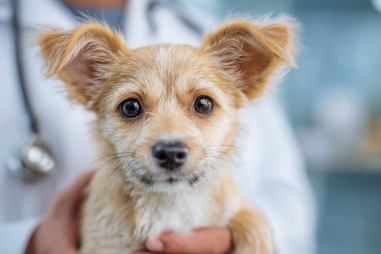Miniature Pinschers are lively, affectionate, and intelligent little dogs that can bring joy and energy to a household with children. However, like any breed, they thrive best when they are properly introduced to children and their interactions are thoughtfully supervised. Raising a Miniature Pinscher alongside your kids involves understanding their temperament, teaching respectful behavior to your children, and ensuring training is consistent for positive interactions. In this article, we’ll explore how to create a safe, loving environment where both your Miniature Pinscher and children can develop a lifelong bond filled with fun and companionship.
Miniature Pinscher Temperament Around Children
Miniature Pinschers, often affectionately called “Min Pins,” are known for their spirited and confident personalities. Despite their small size, they have a big presence and a curious nature. When it comes to children, Miniature Pinschers can be very playful and enjoy interacting with their young family members. Their lively spirit often mirrors the energy of active kids, making playtime exciting and enjoyable.
However, it’s important to note that Min Pins can also be a bit feisty and independent. They have strong personalities and might not tolerate overly rough handling, which sometimes happens inadvertently with young children who are still learning how to treat dogs gently. Because of this, they are best matched with children who understand how to respect a dog’s boundaries or under adult supervision to prevent misunderstandings.
With their sharp intelligence and alertness, Miniature Pinschers tend to bond closely with their family, often forming protective attachments. This means that they might be wary of strangers or unfamiliar people around children. Early socialization is key to help them get comfortable and friendly with a variety of people, making family gatherings and visits less stressful for the entire household.
Teaching Kids How to Interact with Dogs
One of the most crucial steps in ensuring a happy relationship between your Miniature Pinscher and your children is educating the kids on how to behave around dogs. Teaching respectful and safe interactions sets the foundation for a positive experience for both.
Some important lessons to impart to children include:
- Approach calmly and quietly: Sudden movements or loud noises can startle small dogs like Min Pins.
- Ask for permission: Even if the family dog is familiar, teach children to always ask an adult before petting or handling the dog.
- Gentle touching: Show kids how to stroke the dog softly and avoid pulling tails, ears, or fur.
- Respect dog’s space: Explain that the dog needs personal space, especially when eating, sleeping, or retreating to a quiet spot.
- No chasing or roughhousing: High-energy games can be overwhelming to dogs and might provoke defensive behavior.
- Recognize dog body language: Teach children simple signs that a dog needs a break, such as growling, backing away, or pinned ears.
Involving children in the daily care routine of the Miniature Pinscher, like feeding or grooming with supervision, can also build respect and a deeper understanding of the dog’s needs.
Supervising Playtime and Safety Tips
Supervised playtime is essential for maintaining the safety and comfort of both your Miniature Pinscher and your children. Despite their small size, Min Pins are energetic and quick, which can sometimes lead to unintentional rough play.
Here are some key safety tips while the dog and kids play:
- Always have an adult present: Never leave young children alone with any dog, regardless of how well they know each other.
- Set time limits: Miniature Pinschers can become overstimulated. Watch for signs of fatigue or agitation and give them breaks.
- Use appropriate toys: Provide durable, dog-safe toys to divert chewing and biting to acceptable objects, avoiding hands or clothing.
- Create safe zones: Designate quiet areas where the dog can retreat if overwhelmed or tired.
- Discourage chasing games: Quick sprints after the dog can trigger prey drive or lead to accidental falls.
- Teach kids to avoid hugging: While affectionate, many dogs feel restrained by hugging, so encourage pets and gentle pats instead.
By monitoring interactions closely and setting clear boundaries, you create a secure environment that fosters trust and enjoyment for everyone.
Training the Dog for Positive Child Interaction
Training your Miniature Pinscher is vital to promoting good behavior around children. Min Pins are intelligent and quick learners, which makes them responsive to consistent, positive reinforcement training methods.
Some essential training steps include:
- Basic obedience commands: Teaching “sit,” “stay,” “come,” and “leave it” can help you control your dog during play and interactions.
- Socialization: Regularly exposing your Min Pin to children of various ages, strangers, and different environments helps reduce fearfulness or aggression.
- Desensitization to noise and movement: Children can be loud and unpredictable; gradual exposure will calm your dog’s reactivity.
- Impulse control exercises: Teaching your dog to wait patiently rather than jump or nip during excitement is important with energetic kids.
- Positive reinforcement: Reward the dog with treats, praise, or play for appropriate behavior around children.
- Consistent routine: Predictable schedules for feeding, exercise, and play reduce stress and improve behavior.
Consider consulting a professional trainer if your Miniature Pinscher shows signs of anxiety or aggression related to children. Early intervention is key to a peaceful household.
Resolving Common Issues
Even with the best preparation, challenges may arise when raising a Miniature Pinscher with children. Some common concerns include nipping, barking, jealousy, or resource guarding. Understanding how to handle these issues calmly will ensure peaceful coexistence.
- Nipping: Young Min Pins may nip during play due to teething or excitement. Respond by redirecting to a chew toy, calmly saying “no,” and offering praise when the dog uses toys instead.
- Barking: Min Pins are vocal and alert watchdogs. Teaching the “quiet” command and exposing them calmly to various stimuli can reduce excessive barking.
- Jealousy: Dogs sometimes feel left out if attention shifts heavily toward children. Make sure to include your Miniature Pinscher in family time and give one-on-one affection.
- Resource guarding: If the dog guards toys or food, gently train them with positive reinforcement to share space and practice “drop it” commands.
- Overexcitement: Encourage calm greetings and use exercise outlets like walks and games to balance high energy.
Patience and consistent responses from all family members go a long way in solving these challenges.
Encouraging Lifelong Friendships
One of the most rewarding aspects of raising a Miniature Pinscher with children is witnessing the development of a deep, lifelong friendship. By fostering mutual respect, love, and understanding from an early age, both your dog and kids can benefit emotionally and socially.
Here are some ways to encourage this bond:
- Share positive experiences: Plan activities like obstacle courses, fetch, or gentle training sessions that children and the dog can enjoy together.
- Celebrate milestones: Recognize small successes, such as your dog remaining calm during visits or your children learning new commands.
- Include the dog in family routines: Incorporate dog walks or feeding times into the children’s schedules to build responsibility and connection.
- Read and learn together: Explore books or videos about dogs to teach empathy and deepen understanding.
- Encourage patience: Remind children that relationships take time and that every dog has unique personality traits.
With care and attention, your Miniature Pinscher can become a trusted companion and best friend for your children, bringing joy, protection, and countless happy memories.
Creating a Harmonious Home
Bringing a Miniature Pinscher into a home with children offers boundless opportunities for growth, laughter, and companionship. By understanding the breed’s characteristics, educating your children on respectful behavior, supervising play carefully, committing to consistent training, and addressing challenges with compassion, you cultivate a loving environment where dog and child thrive.
Remember that every family and dog is unique, and flexibility is essential. When nurtured properly, the relationship between your Miniature Pinscher and your children will blossom, offering both emotional benefits and unforgettable moments that last a lifetime.







